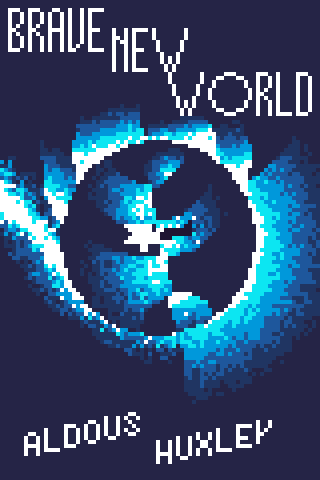Brave New World

During a work lunch we were discussing the current state of AI, AGI, happiness and dystopianism. One thing that come up was Brave New World by Aldous Huxley.
So I’ve decided to finally read it.
✏️ As a side note: the audiobook read by Michael York has some really nice voice acting.
Almost a hundred years later, it seems that we are speedrunning the society to the one described in this novel.
A large difference between typical dystopian novels and reality, is that in the dystopias described in fiction, the world governments do something to keep the masses happy.
Be it by free drug Soma distribution in Brave New World, free drug distribution in The Futurological Congress, access to OASIS in Ready Player One, The Matrix1… you name it.
Dystopian stories revolve around worlds where we remove freedom and replace it by some form of forced happiness or stability. The real world just takes away the former, and gives us Reels and TikTok. Crowd dispersal methods2 are also more humane that what we have to deal with—tear gas and stick to the face in Europe, bullets and tazers in the US. Actual voluntary exile for misfits is also surprisingly humane, if the author’s goal was to portray this world as some extreme dystopia.
The writing was refreshing, with more flourish than modern literature. The audiobook version makes the alliterations stand out.
My main takeaway would be: to make a relatable story about destroying a dystopia, one has to find a way for protagonists to not only revert to the old regime, but also provide a solution to the problems the dystopia solved.